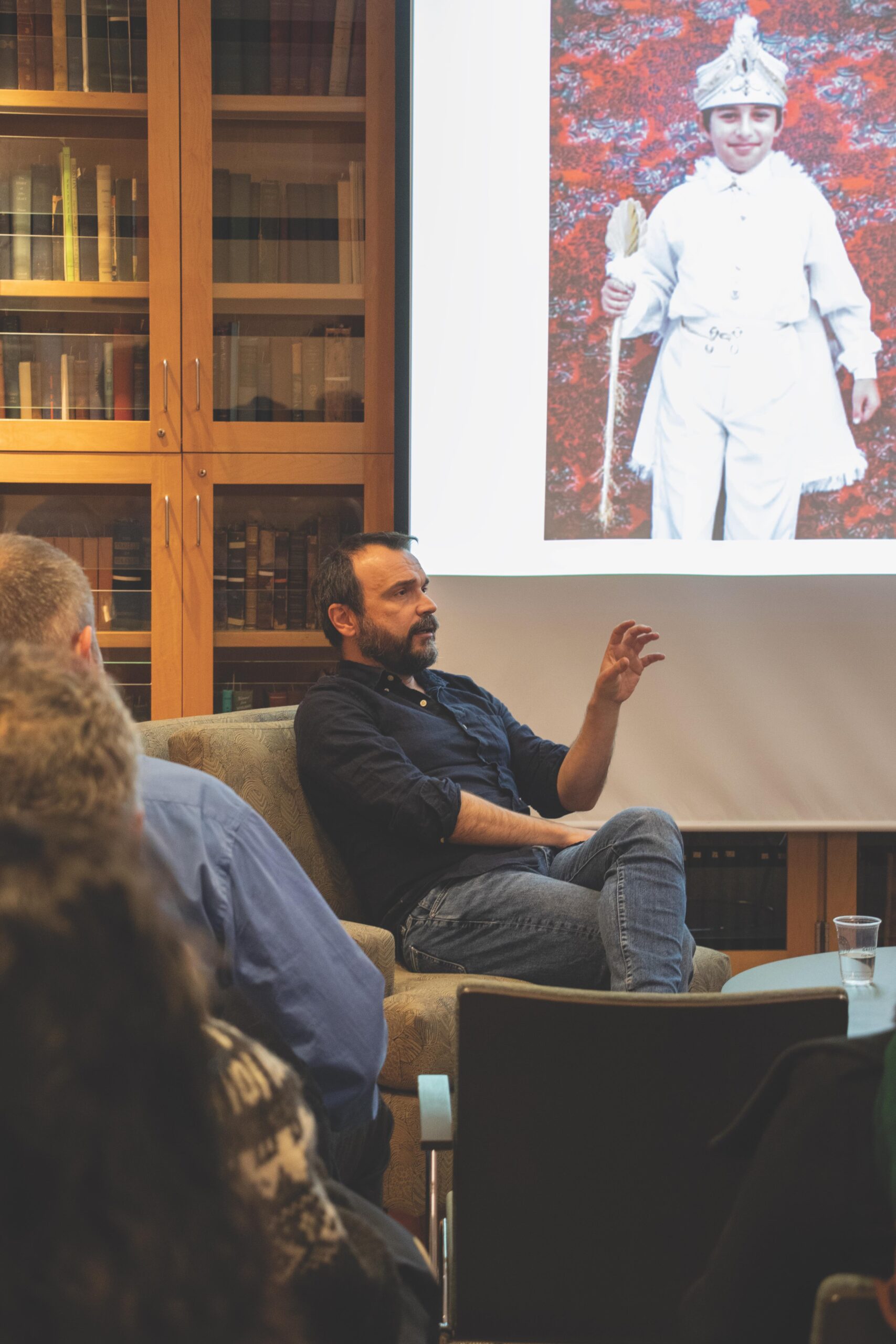Sociology Professor Basaran talks book about circumcision practices in Turkey
November 17, 2023
 Amira Oguntoyinbo
Amira OguntoyinboOn Thursday, Associate Professor of Sociology Oyman Basaran spoke to colleagues, community members and students about his new book “Circumcision and Medicine in Modern Turkey,” which delves into the process of male circumcision. The book launch was moderated by Associate Professor of English Hilary Thompson.
Circumcision is seen as a rite of passage for young boys in Turkey. Basaran specifically researched the changing role of male circumcisers, known as sünnetçi, and how they adapted to state formation and the evolving healthcare system from the beginning of the 20th century until today.
Basaran’s book takes a spin from common sociological practices in analyzing medicalization—the process of making nonmedical problems medical—with psychoanalysis.
“I’m looking at that experience, the medical and social aspect of circumcision from the perspective of practitioners themselves,” Basaran said. “And circumcision is seen as a rite of passage in Turkey. It’s a ritual in Turkey, and it has been medicalized by the state and by the doctors by hospitals.”
During the talk, Basaran described mass circumcision rituals in Turkey, in which families bring their young boys to be circumcised by a sünnetçi. The young boys are often dressed in ceremonial robes and attire. Families usually bring gifts to celebrate in both individual and mass circumcision rituals.
In both the talk and book, Basaran explored how the state and medical actors became more involved in the religious rituals and what role they play in the process, specifically in regards to reducing pain.
“In 1928, the Turkish state introduced a new law saying that you have to have a medical education if you want to circumcise kids. But that did not really have much effect on the ground until the 1960s,” Basaran said. “Before [that], they had officers introduce pain management techniques in the 1960s. That doesn’t mean that they were not concerned about pain at all. They were concerned, they would use herbs—they were using different techniques. But on a more systematic level, pain management became a concern.”
In individual circumcisions, as opposed to mass circumcisions, young boys are often offered distractions to take their minds off the pain.
“They play the PlayStation while being circumcised. It serves as a source of distraction, and they accept it. But with the other mass circumcisions, there are no distractions,” Basaran said. “There was no management of fear. But pain management was okay.”
Having attended traditional circumcision rituals for his research, Basaran decided to include more details about his emotions in the last two chapters of his book and spoke on these chapters with a sense of emotional charge.
“I pay attention to my emotions and my memories as well, and I incorporated that into my analysis,” Basaran said. “I was going back and forth between these different settings: middle-class settings [take] place very smoothly, almost no kids cry. And then I go to this mass circumcision the same day, and [children are] crying, mom starts crying, the other one starts crying. It’s always quite a stressful environment. Then I pay attention to the emotional changes that I was experiencing as well.”
Assistant Professor of Sociology Shruti Devgan attended the talk to support Basaran as both a colleague and a friend. She said that Basaran’s new book is innovative because he uses psychoanalytical and anthropological methods.
“So it’s innovative in terms of its methodology, as well in terms of the fact that it’s based in Turkey. So it’s a kind of mixed context—it’s not exactly the West, so the context is interesting as well,” Devgan said.
Devgan also noted that Professor Thompson’s areas of expertise in literature set the stage for Ba?aran to discuss distinct facets of his book.
“I thought there were a lot of interesting questions that [Thompson] posed. And I think it was interesting because she was approaching this as a non-sociologist,” Devgan said. “She asked questions about psychoanalysis and about feminist theory.”
Comments
Before submitting a comment, please review our comment policy. Some key points from the policy:
- No hate speech, profanity, disrespectful or threatening comments.
- No personal attacks on reporters.
- Comments must be under 200 words.
- You are strongly encouraged to use a real name or identifier ("Class of '92").
- Any comments made with an email address that does not belong to you will get removed.

Forcing or coercing healthy normal children to have genital reduction surgery is unethical. Most of the world is genitally intact. Informed adults can decide for themselves.
The idea that circumcisions are non-medical is problematic. There are a variety of reasons to advise circumcision, ranging from cleaning issues to foreskin cancer. The latter seems congenital, indicating a legitimate medical need for circumcision in some families and family lines. Whether that medical need aligns with the reality of who gets circumcised, is the sociological question. Some cultures abhor it, others embrace it, and that might well reflect variable genetic predisposition. Basaran’s assertion that it’s non-medical, presumes that the practice and predisposition aren’t aligned – has anyone studied that?